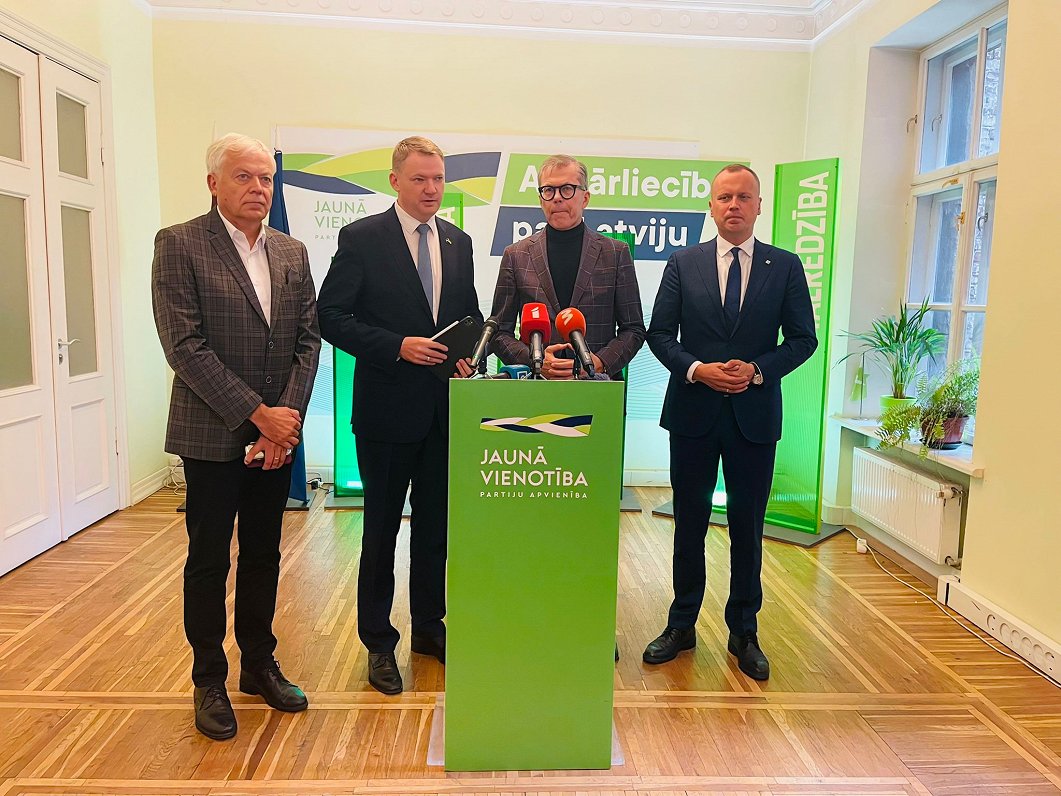Following President Egils Levits' decision to ask incumbent Prime Minister Krišjānis Kariņš to lead coalition formation talks, the focus has been on whether a narrow three-party, right-of-center coalition would work or whether a broader four-party centrist coalition would be the better option.
A three party coalition could be formed by Kariņš' New Unity party with the United List and National Alliance parties which would control 54 seats in the 100-seat Saeima.
Alternatively, a four party coalition that included the more left-leaning Progressives would have a much more comfortable 64 seats which would enable a stronger presence on parliamentary committees, among other things, but would bring with it much more potential for internal policy disagreements.
On Wednesday morning Uldis Pīlens, the businessman-turned-politician who is a leading figure of the United List – but who did not himself stand in the recent elections – told Latvian Radio that the three party model would be "a good way to start" and that including the Progressives might result in "too much of an ideological mix". He acknowledged that the New Unity party was keen to include the Progressives if it could but warned that "nowhere in Europe" did wide mixes of ideology in government work. United List voters had little sympathy for the Progressives' ideas, he added.
Meanwhile, New Unity leader Krišjānis Kariņš said in an interview on Latvian Television's "Morning Panorama" program that it is important for him to establish a strong government. "That this would be a government that is capable not only of getting through the crisis, but also of making the necessary reforms so that we can achieve faster economic growth. To do this, it is necessary to involve all state-minded political forces, which are four in total," said Kariņš.
He expressed his suspicion that the partially negative attitude towards the "Progressives" could also be explained by the reluctance to share ministerial seats, and ideological differences, in his opinion, are surmountable. From the talks so far, Kariņš concluded that the United List has a slightly more lenient position towards possible cooperation with Progressives, and a meeting of the two political forces is planned, while the National Alliance's opposition is more entrenched.
The difference between the National Alliance and the Progressives was memorably described by National Alliance deputy Rihards Kols as being like the difference between polar bears and penguins. He meant that their paths never cross – but in so doing may have raised the possibility that a government with the Progressives in it might become known as the "penguin coalition".
Kariņš emphasized that there are also ideological differences between New Unity and the National Alliance. In every coalition, there are issues on which it is clear that it will be impossible to agree, accordingly, at the beginning of the creation of the coalition, "we agree on what we cannot agree on", Kariņš said.
Kariņš is expected to report back to President Levits on Monday with an update on how talks have gone. Levits has mentioned both three- and four-party coalition models as possibilities and said te government must be reformist in nature. If agreement on one model cannot be reached before Monday, it is possible the coalition parties might try to prompt Levits to declare a clear preference of his own in order to make him take some responsibility for whatever transpires.





























